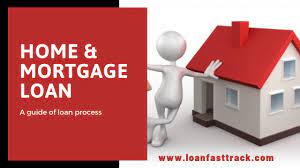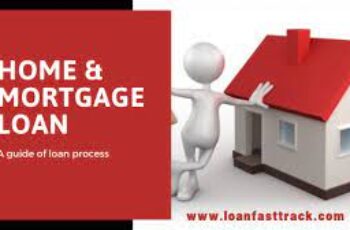
A mortgage is a loan that is used to purchase a property or real estate. The borrower, also known as the homeowner, uses the property as collateral to secure the loan. The lender, usually a bank or other financial institution, provides the funds needed to purchase the property and is paid back with interest over a set period of time, usually 15 or 30 years.
What Is A Mortgage Loan
One of the main advantages of a mortgage is that it allows individuals to purchase a home, which is often the largest and most expensive purchase they will make in their lifetime. Without a mortgage, many people would not be able to afford to buy a home, as the cost of a home is often much higher than what they can afford to pay upfront.
When applying for a mortgage, the lender will consider a number of factors, including the borrower’s credit score, income, and debt-to-income ratio. A good credit score and stable income can increase the chances of being approved for a mortgage, while a high debt-to-income ratio may make it more difficult to secure a loan.
There are different types of mortgages available, including fixed-rate mortgages and adjustable-rate mortgages. Fixed-rate mortgages have a set interest rate that remains the same throughout the life of the loan. This means that the monthly payments will remain the same, making it easier for borrowers to budget and plan for their monthly expenses. Adjustable-rate mortgages, on the other hand, have an interest rate that can change over time, which means that the monthly payments may also change.
What Is A Mortgage Loan
In addition to the type of mortgage, there are also different loan options available, including government-backed loans such as FHA loans and VA loans. FHA loans are backed by the Federal Housing Administration and are available to individuals with lower credit scores or who have limited funds for a down payment. VA loans are available to active-duty military members and veterans, and do not require a down payment.
Another factor to consider when applying for a mortgage is the down payment. A down payment is the amount of money that a borrower pays upfront towards the purchase of the property. The larger the down payment, the less the borrower will need to finance, which can result in lower monthly payments and a shorter loan term.
It is important to understand the terms and conditions of a mortgage before signing on the dotted line. This includes understanding the interest rate, the length of the loan, and the monthly payments. Borrowers should also be aware of any fees or penalties associated with early repayment or missed payments.
In conclusion, a mortgage is a loan that allows individuals to purchase a property by using the property as collateral. It is important to carefully consider the different types of mortgages and loan options available, as well as the terms and conditions of the loan, before making a decision. With the help of a mortgage, many individuals are able to achieve their dream of homeownership, and it is an important tool for building wealth and financial security.
